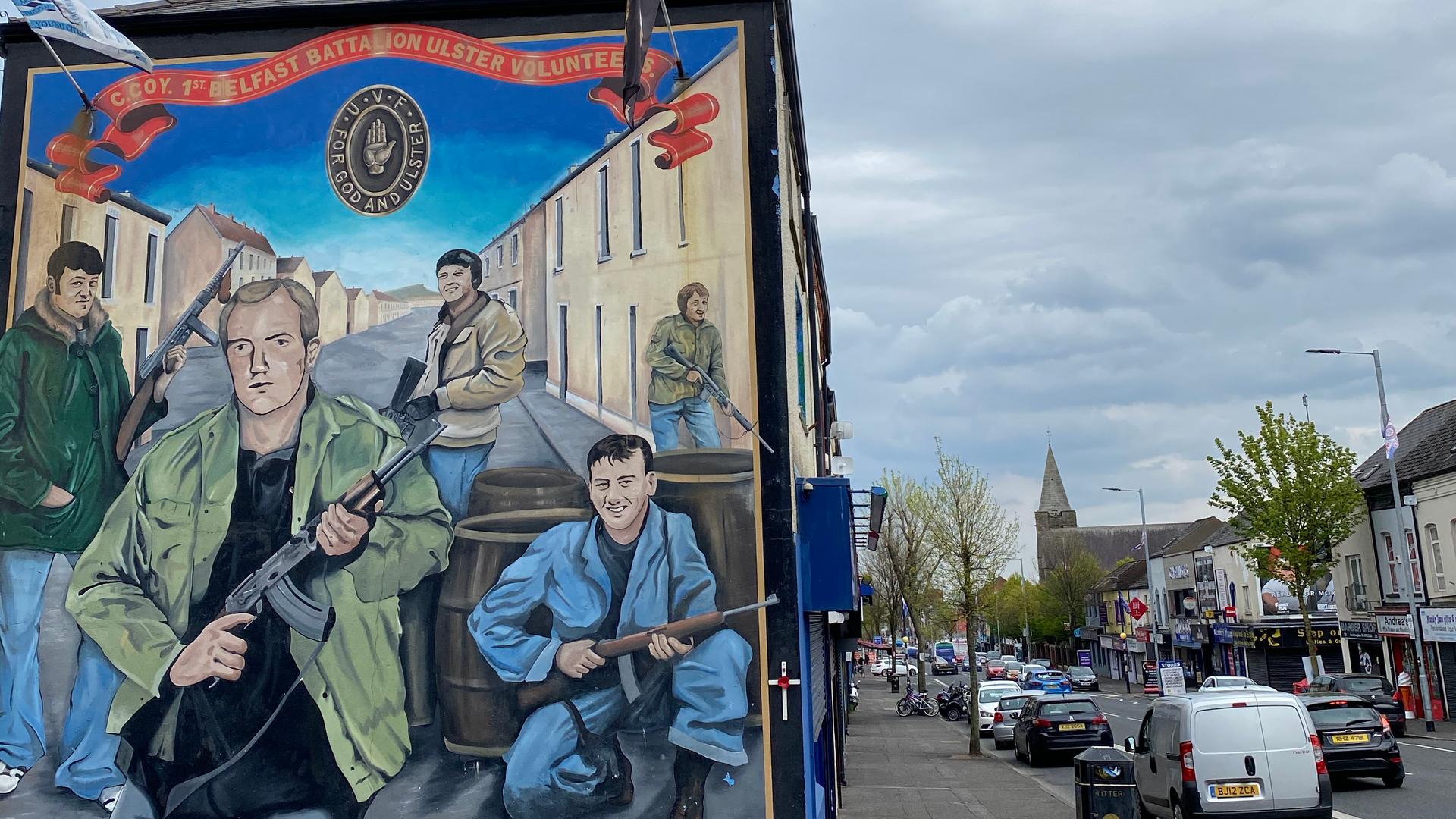Days of rioting in Northern Ireland last month were blamed on anger over Brexit, but upon closer inspection, the issues run much deeper.
A century ago, Ireland was split into an independent, Catholic-majority republic in the south, and a predominantly Protestant north, which stayed in the United Kingdom. A hard-won peace in 1998 stopped decades of conflict. But, Brexit has fueled debate over its future, after the UK left the European Union, and Ireland stayed.
Of all the complexities involved in Brexit, Robin Mercer never thought it would stop him from importing flowers.
“The same roses we brought in from England, we’ve now had to bring in from Ireland to top them up and they’re 20% dearer. … Prices are going up.”
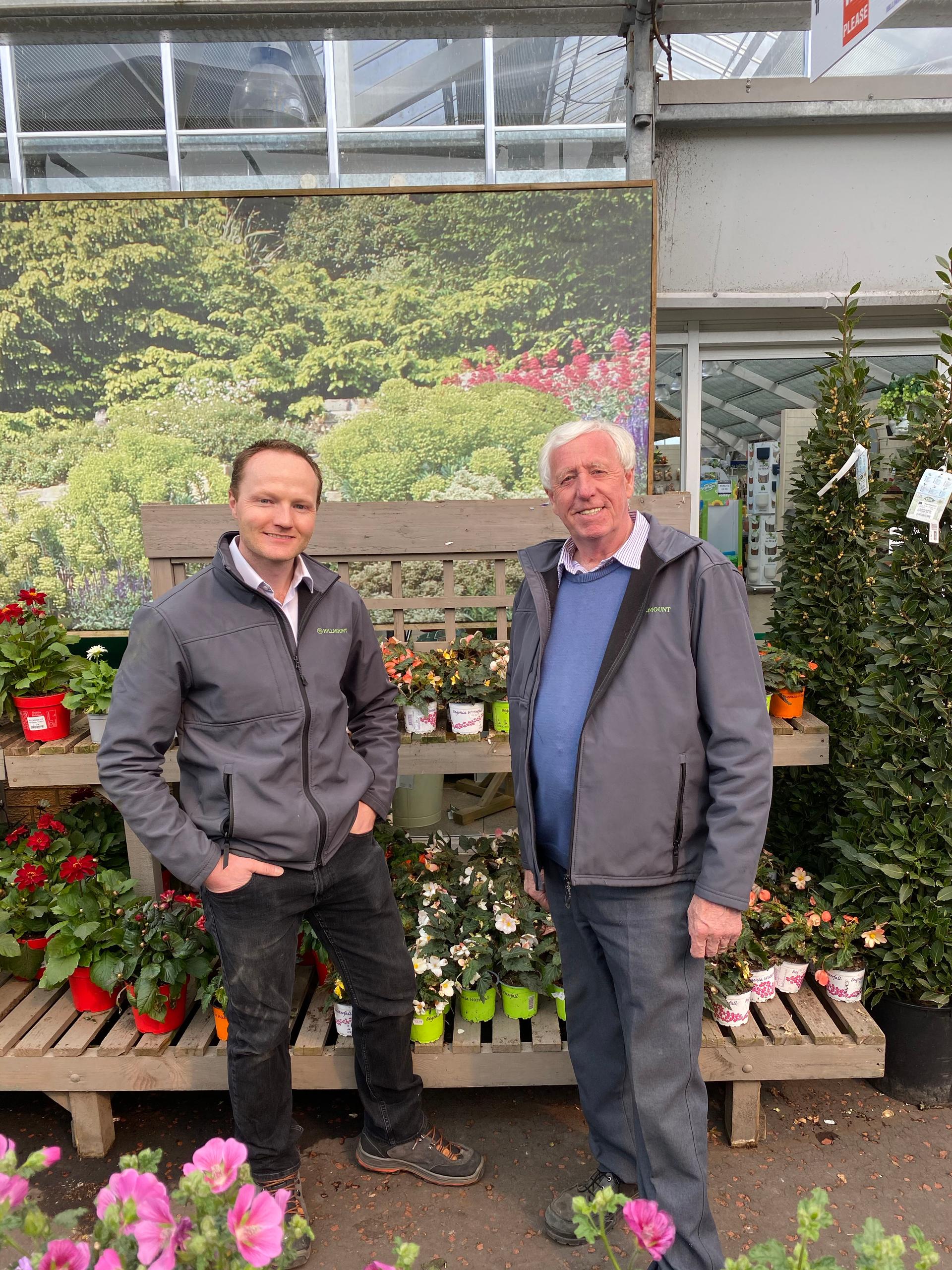
Related: Concerns about an English border loom over Scottish elections
“The same roses we brought in from England, we’ve now had to bring in from Ireland to top them up and they’re 20% dearer,” Mercer said. “Prices are going up.”
In the 80 years since Mercer’s grandfather founded the Hillmount Garden Center on the outskirts of Belfast, on Northern Ireland’s east coast, the business has never faced as many obstacles as it does now.
The past year of lockdowns has seen a demand for plants and garden furniture outstrip supply, while staff have been furloughed. Now, complicated post-Brexit trading arrangements are acutely hitting the horticultural sector.
Doing customs checks on Northern Ireland’s land border with EU-member Ireland was deemed politically sensitive and logistically challenging.
The compromise, known as the Northern Ireland Protocol, keeps the North under EU trading regulations. Now, goods such as seeds and plants coming from mainland Britain are checked at Northern Irish ports, instead.
The process adds layers of costly administrative burdens for small businesses like Hillmount.
“All these garden centers, we’re all family businesses, we’re all working hard. We can’t afford to have staff just sitting in an office. It’s a ridiculous amount of paperwork.”
As if that wasn’t enough, earlier this year, Mercer was told that some of his stock was on the Ever Given container ship that blocked the Suez Canal for six days in March.
“It’s still stuck there. You couldn’t make it up! It’s been a nightmare year.”
Related: Brexit undercuts Northern Ireland’s peace pact
Politics and ports
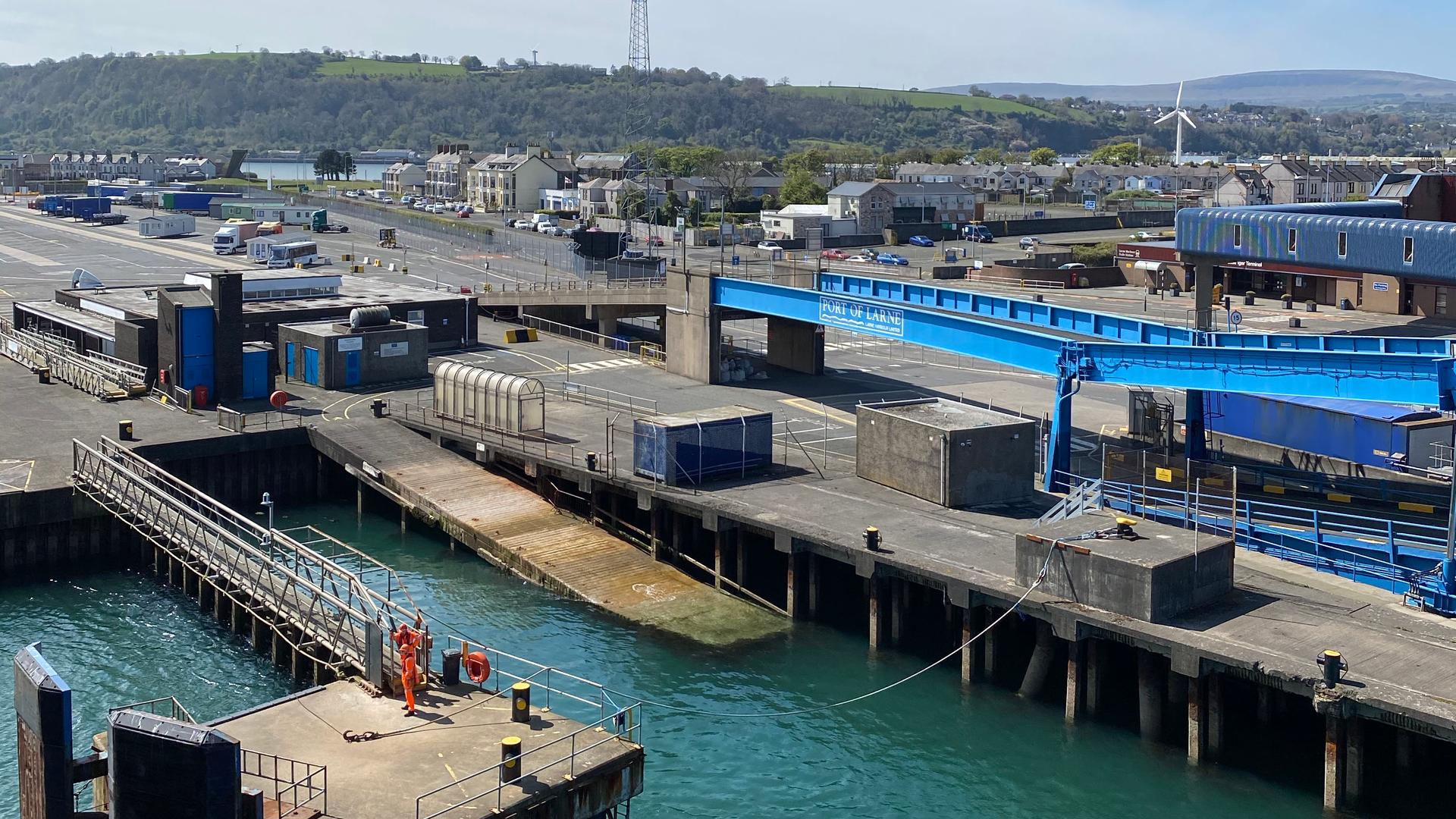
The plight of Northern Irish garden centers may seem a trivial price to pay for delivering Brexit, but the protocol appears to be aggravating the region’s fragile political and constitutional order.
It’s also causing disruptions at the port of Larne, north of Belfast, where goods from mainland Britain are now checked.
Councilor Paul Reid, from the Democratic Unionist Party (DUP), stands under a sign reading “No Irish Sea Border” as a large ferry looms into port.
“I asked for a book to come through Amazon, from another part of the UK, and it had to go through customs. This is ridiculous, we are still part of the UK.”
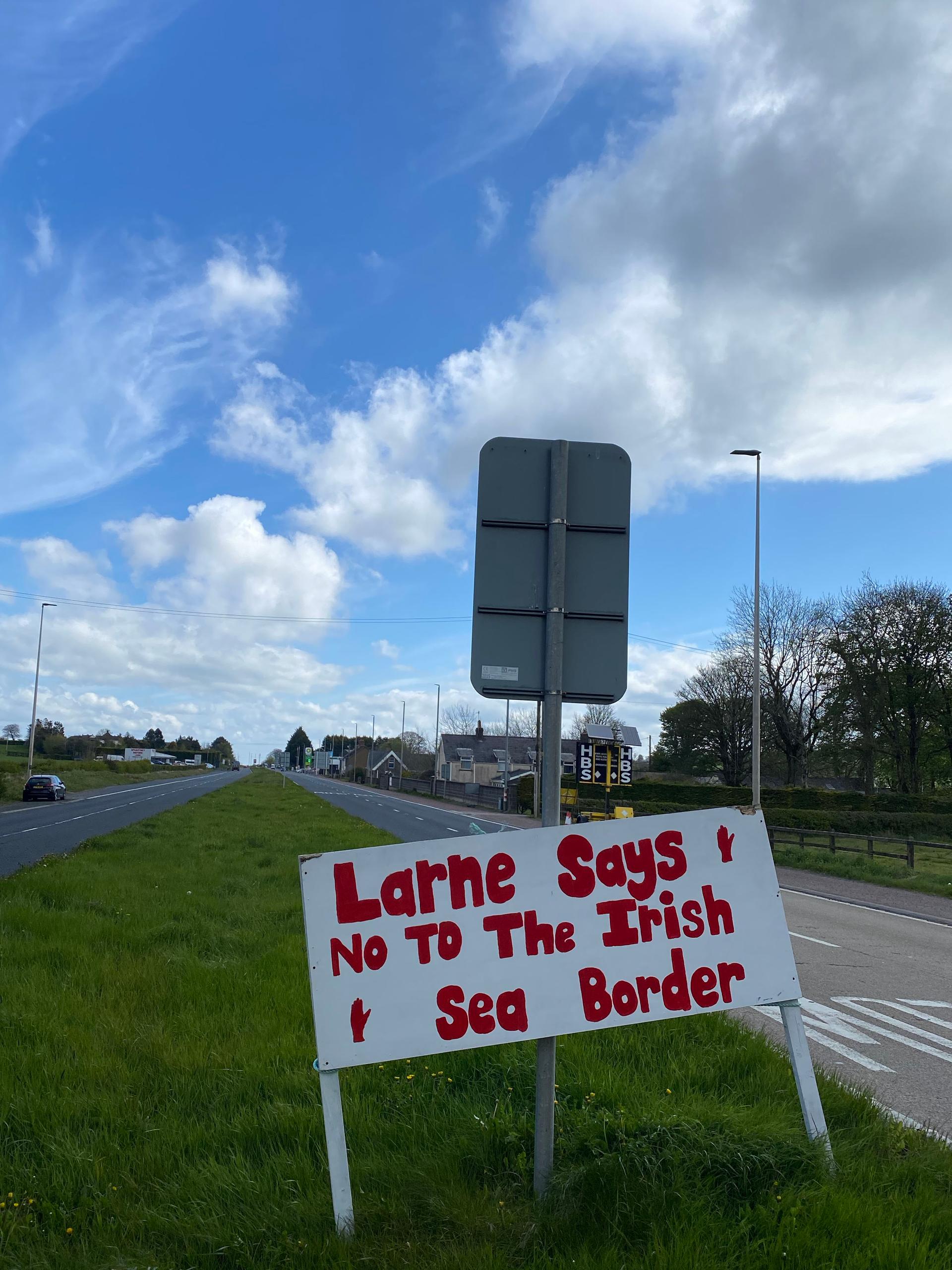
“I asked for a book to come through Amazon, from another part of the UK, and it had to go through customs. This is ridiculous, we are still part of the UK.”
The DUP are staunch advocates of keeping Northern Ireland in the UK. They share power with Sinn Fein, who campaign for a united Ireland. For Reid, any kind of border between the United Kingdom threatens Northern Ireland’s identity.
“We are now between a rock and a hard place,” said Reid. “Our prime minister did not honor the promise that we are as much British as any other part of the country.”
The DUP were enthusiastically pro-Brexit, even though 55% of Northern Irish voters wanted to remain in Europe. They now feel betrayed by Boris Johnson, who in 2019 told an audience in Northern Ireland: “I want to make it absolutely clear that under no circumstances, under no circumstances whatever happens, will I allow the EU or anyone else to create any kind of division down the Irish Sea, or to attenuate our union.”
Since customs checks began this year, the harbor has become a focal point for a series of provocations by people who see the protocol as a betrayal. One port worker was allegedly relocated after receiving threats. Protesters threw rocks at police. Graffiti appeared reading: “All port staff are targets.”
Local councilor Danny Donnelly, from the opposition Alliance Party, helped to get it removed.
“I think some people feel very strongly about the Northern Ireland Protocol. They feel it infringes on their identity, but Brexit has harmed the strength of the union, and the protocol is the result of Brexit. It is the reality of Brexit in Northern Ireland.”
“It’s disgusting that any workers are targeted, everybody should be safe going to work,” said Donnelly. “I think some people feel very strongly about the Northern Ireland Protocol, They feel it infringes on their identity, but Brexit has harmed the strength of the union, and the protocol is the result of Brexit. It is the reality of Brexit in Northern Ireland.”
Renewed violence
In late March, the worst street violence in several years saw 12 days of rioting spread across several towns and cities in Northern Ireland. About 90 police officers were injured and nearly 20 people were arrested after youth, as young as 13, set cars alight and threw petrol bombs and stones at police.
Some commentators blamed the protocol.
But were young people really motivated by a complex, international trade agreement?
In Belfast, the unrest occurred largely in working-class Protestant areas loyal to the United Kingdom. In areas like Shankill Road, where Mary McDermott works as senior psychotherapist at Compass Counseling, communities are effectively segregated and dare not stray into each other’s patch.
“From a very young age, you have to be careful because your name or what football shirt you’re wearing can signal whether you’re a Catholic or a Protestant.”
“From a very young age, you have to be careful because your name or what football shirt you’re wearing can signal whether you’re a Catholic or a Protestant,” said McDermott.
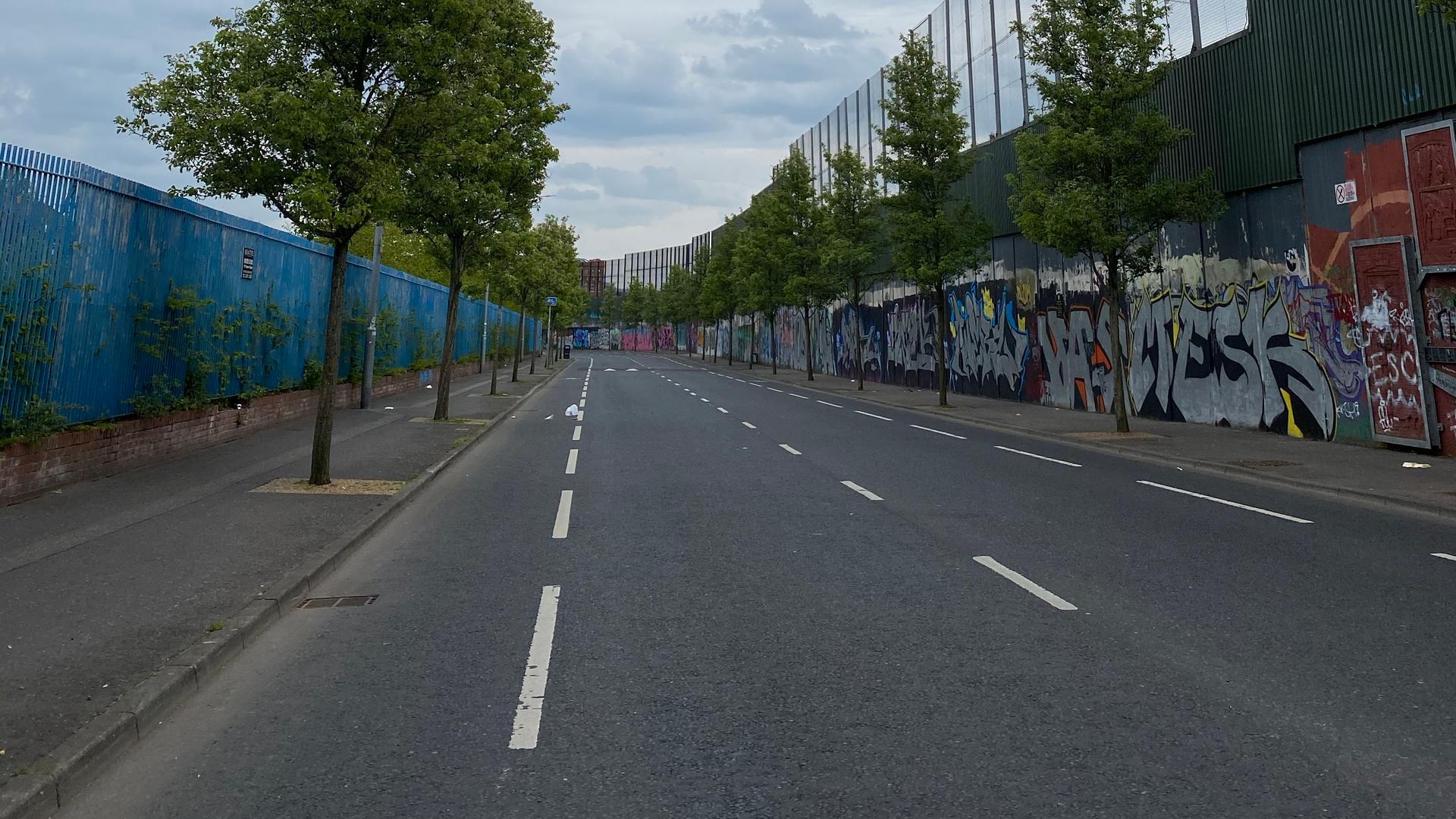
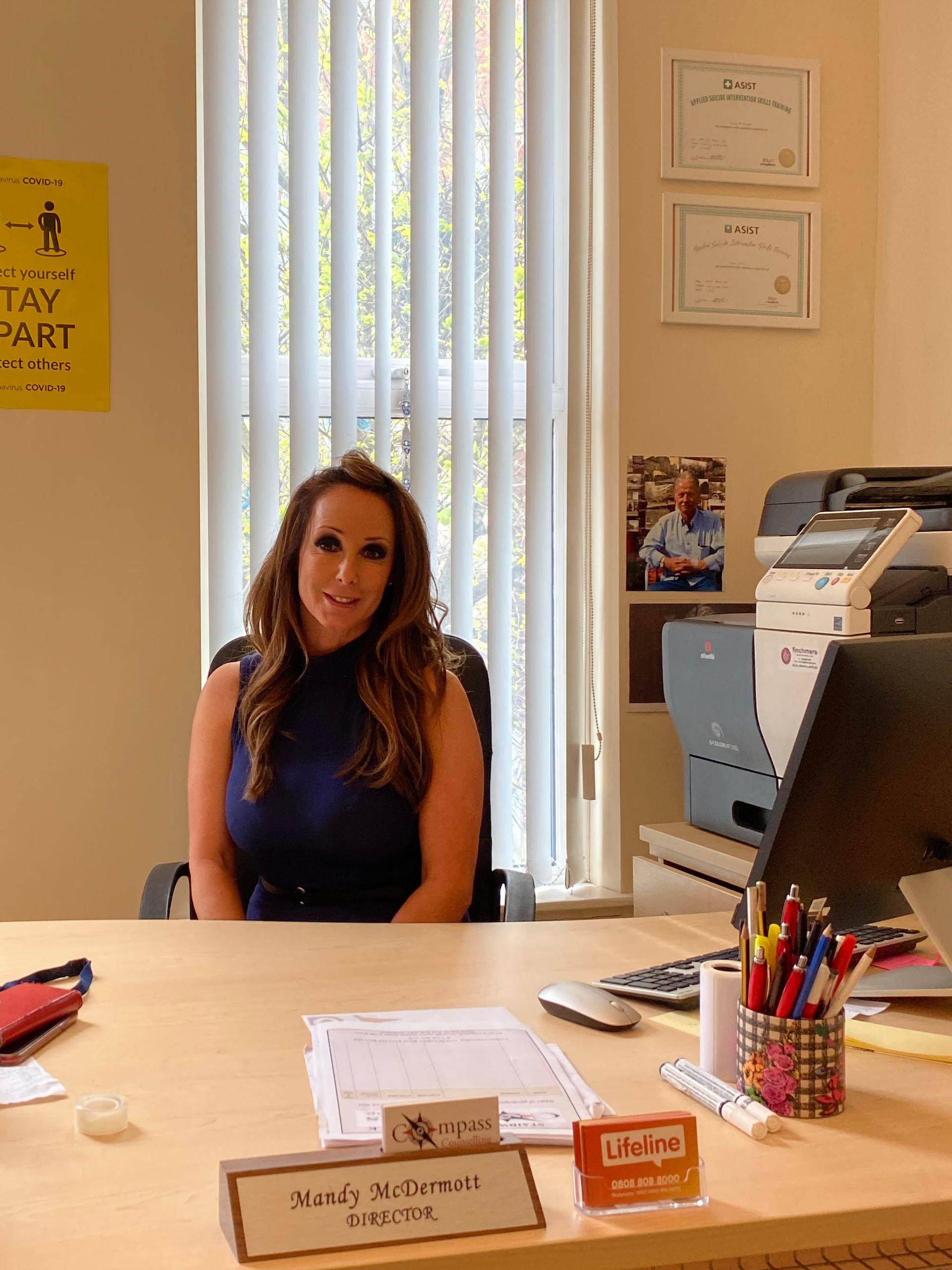
Northern Ireland is technically a post-conflict society. McDermott said that sectarianism, combined with intergenerational trauma, poverty and drug and alcohol abuse, creates fertile grounds for clashes.
She also hinted at shadowy forces provoking youth to riot.
“The lockdowns and restrictions of last year have created a lot of frustration among young males with pent-up energy. But certain elements within certain communities were aware that something was about to happen.”
Miles of walls and fences still separate Catholic and Protestant communities, some up to 43-feet-high and linked by gates, which are locked at night.
Related: Northern Ireland still divided by peace walls 20 years after conflict
Just a few hundred yards from Shankill Road, the Union Jack flags suddenly become Irish tricolors. The vivid murals of balaclava-clad, gun-toting paramilitaries switch from Loyalist to Republican.
In this stark atmosphere, criminal gangs with political connections can stir up tension at a moment’s notice, said Stephen Hughes, senior youth worker at St. Peter’s Immaculata Youth Center.
“Those kids were bullied, threatened and bribed. We have stories of kids getting bags of drugs if they threw petrol bombs. These gangs are wolves in sheep’s clothing. They are organizations who dress themselves up as political warriors or paramilitaries but they are involved in extortion, drugs, counterfeiting and it’s all ego, money, power and control.”
Hughes’ staff were on the frontline when the riots erupted, trying to stop young people from getting sucked into the violence and help them find common ground.
Related: Northern Ireland’s police reform efforts hold lessons for the US
“They realize that the other kid on the other side of that wall is so alike to them, it’s unbelievable. Yes, they may have a constitutional difference and a faith difference, but it’s not enough to keep them divided.”
“They realize that the other kid on the other side of that wall is so alike to them, it’s unbelievable. Yes, they may have a constitutional difference and a faith difference, but it’s not enough to keep them divided.”
Hughes thinks that Brexit is not the cause of the unrest, but it heightens preexisting tensions. Recent polling and demographic shifts suggest that a referendum on Irish reunification could well be likely in a decade or two.
“If you speak to our kids, they will tell you: ‘We want something different. We don’t want your walls. We don’t want your hate.’ But what we’re seeing now with this Brexit debacle is that it’s being weaponized and used to divide our community. And trust me, there’s no benefit in dividing us.
The consequences can be quite scary actually.”
We want to hear your feedback so we can keep improving our website, theworld.org. Please fill out this quick survey and let us know your thoughts (your answers will be anonymous). Thanks for your time!
